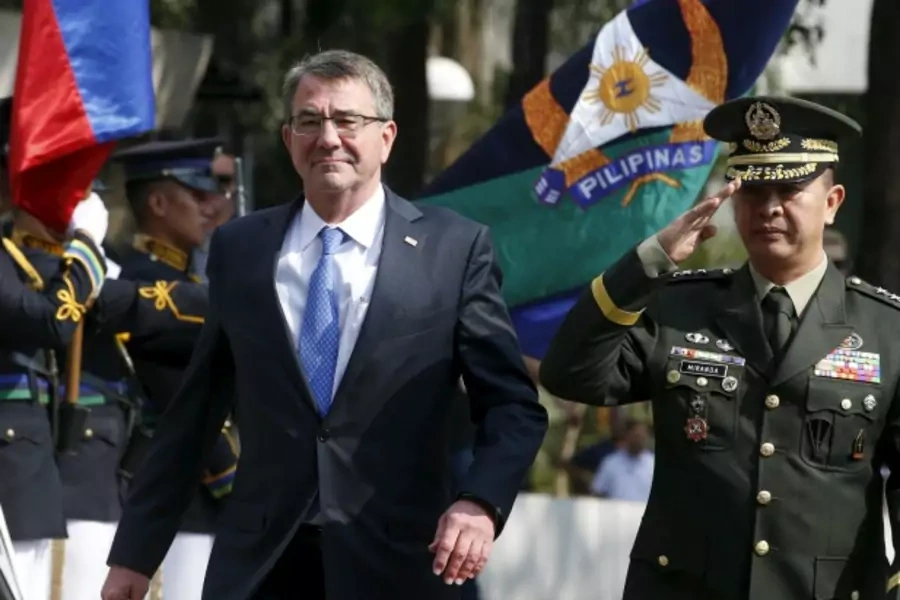How Has the Rebalance Affected Security Assistance to Southeast Asia?

More on:
Earlier this month, Secretary of Defense Ashton Carter visited the Philippines, an increasingly important U.S. security partner. In the Philippines, where he observed the annual Balikatan (shoulder-to-shoulder) exercises, Carter made several important announcements. He revealed that the United States and the Philippines are, and will be, conducting joint patrols in the South China Sea. Carter also offered specifics on new U.S. assistance to the Philippines as part of the new U.S. Maritime Security Initiative for Southeast Asia, a program conceived by the Senate Armed Services Committee and designed to provide U.S. aid to Southeast Asian nations to bolster their maritime capabilities. The Diplomat reported that “much of the [Initiative’s] funding goes to support for a maritime and joint operations center; improvements in maritime intelligence, surveillance, reconnaissance (ISR); maritime security and patrol vessel support and sustainment; search and rescue operations support; and participation in multilateral engagements and training.” The majority of the 2016 Initiative funding will go to the Philippines, which, along with Vietnam, is one of the two Southeast Asian nations most aggressively trying to combat potential Chinese militarization of areas of the South China Sea.
The concept of the Maritime Security Initiative seems to dovetail perfectly with the rebalance to Asia, and also to respond to growing demands by the Philippines, Vietnam, Malaysia, Singapore, and Indonesia for a more assertive response to China’s activities in the South China Sea. In fact, the rebalance to Asia has, since its inception, made bolstering bilateral security ties in Asia a centerpiece of the strategy. In addition to the Maritime Security Initiative, the White House signed a new, ten year enhanced defense cooperation agreement with the Philippines last year, the Obama administration has overseen closer defense ties with Malaysia and Vietnam, and the White House inked an enhanced defense cooperation deal with Singapore late last year as well.
Yet have closer defense ties under the rebalance, cemented with cooperation agreements, joint exercises, port calls, and other programs, actually led to greater overall outlays of U.S. security assistance to Southeast Asia? As a new CFR Infographic shows, at least until the Maritime Security Initiative was announced, the answer is no. In fact, between 2010 and 2015, U.S. security assistance to most Southeast Asian nations actually fell, and it remains unclear how the Maritime Security Initiative will alter that trend.
For more details on U.S. security assistance to Southeast Asia under the rebalance, check out the new CFR Infographic.
More on:
 Online Store
Online Store